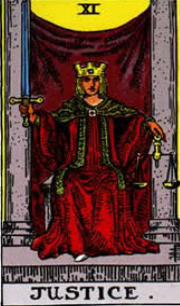
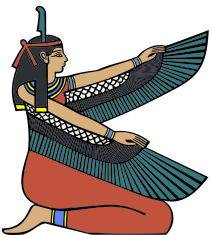 Maat is the Egyptian goddess of truth, justice, balance, and harmony. She regulates the stars, seasons, and the actions of both mortals and the deities and set the order of the universe from chaos at the moment of creation. She is a most ancient goddess; archeologist have found depictions of her from the middle of the Old Kingdom, c. 2600 BCE. To the ancient Egyptians, she was not just the goddess of truth and justice, she was truth and justice. The early kings described
Maat is the Egyptian goddess of truth, justice, balance, and harmony. She regulates the stars, seasons, and the actions of both mortals and the deities and set the order of the universe from chaos at the moment of creation. She is a most ancient goddess; archeologist have found depictions of her from the middle of the Old Kingdom, c. 2600 BCE. To the ancient Egyptians, she was not just the goddess of truth and justice, she was truth and justice. The early kings described
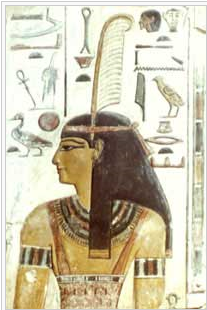
themselves as “Lords of Maat” who spoke aloud the Maat they conceived in their hearts. The Pharaoh’s Vizier, who was a combination of Prime Minister, Chief Security Officer, and Chief Judge, was the High Priest of Maat. Paul Doherty’s fascinating ancient Egyptian mystery series features Chief Judge Amerotke as its sleuth. He not only invoked Maat everyday before he entered the courtroom but also had a very rich and fulfilling relationship with her.
In the underworld, Anubis weighs the deceased’s heart in the balance against Maat, the principle of moral law, justice, and truth, in the form of her feather. If his heart is light, like the feather, he is sent to the lovely realms of Aaru, but if it is heavy with guilt, he is fed to the demoness Ammit, who is part lion, part hippopotamus, and part crocodile, the three biggest killers (besides humans) on the Nile.
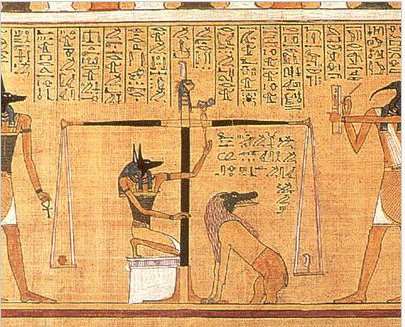
The thing to notice about Maat, or truth and justice, is that the Egyptians considered her to be so essential to creation that the world as we know it couldn’t exist until she overcame chaos and set the universe in order. And she continues to be essential. No one in her right mind is against justice. People down through the ages have given their lives for truth and justice. There is even honor amongst thieves.
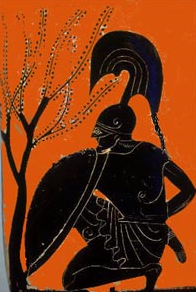
In his book, Achilles in Vietnam, Jonathan Shay, a psychiatrist for a group of Vietnam War veterans with severe, chronic post traumatic stress disorder, theorizes quite convincingly that Achilles suffered from this same trauma. He further asserts that the event that started him down that road to insanity occurred when Agamemnon took away Achilles’s war prize, his beloved princess Briseis. In ancient Greece, a soldier’s war prize was equivalent to a Purple Heart in our army. So Agamemnon, his commander, not only stole Achilles beloved, but also dishonored him. Now, a soldier’s universe is truly polar. It consists of his army, the good guys, and the opposing army, the bad guys. He is laying down his life to save the good guys from the bad guys. He’s fighting for “What’s right”
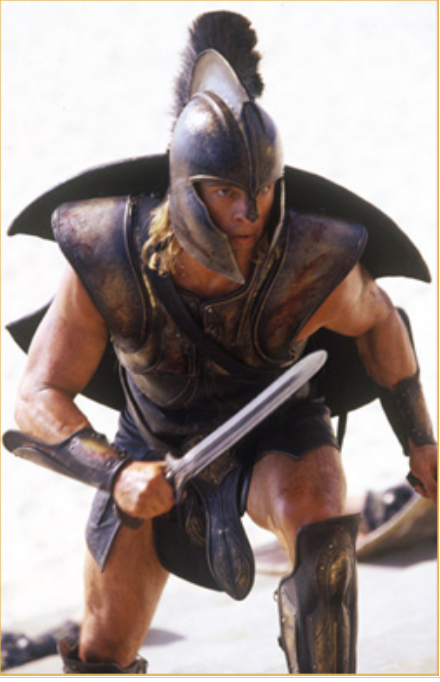
as Shay says, or for Justice. So what happens when the good guys become bad guys? When Justice fails and you can’t tell the difference between the devil you’re fighting against and the devil you’re fighting for? The ancient Egyptians knew damn well what happens—your universe falls apart! Shay calls it post traumatic stress disorder.
Justice is, IMHO, even more important to humanity than religion, maybe even more important than life itself.

